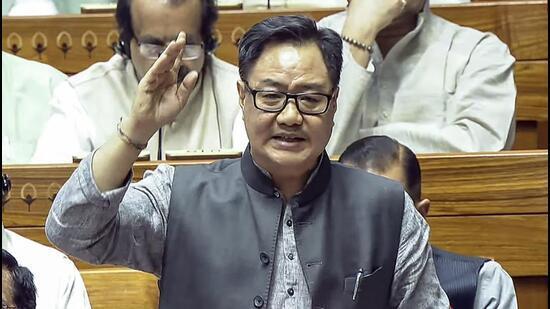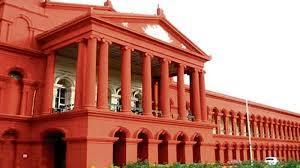
Opposition Creates Confusion & Leaves House: Rijiju in Rajya Sabha
The Indian parliament has long been a stage for heated debates and disagreements between the ruling and opposition parties. Recently, Union Minister Kiren Rijiju sparked a controversy in the Rajya Sabha by criticizing senior members for creating confusion and raising issues in the House without staying back to listen to the replies. This incident occurred during the discussions on the Waqf (Amendment) Bill.
Rijiju, who is the Minister of State for Home Affairs, made these remarks while responding to the debate on the Waqf Bill. The Bill seeks to amend the Waqf Act, 1995, and replace it with a new Act. The new Act aims to strengthen the management and administration of Waqf properties, which are religious endowments dedicated to the maintenance of mosques, imambargahs, and other religious institutions.
However, the opposition parties, including the Congress, have been criticizing the Bill, claiming that it will lead to the dilution of the existing laws and pave the way for the government to take control of Waqf properties. The Congress MP, Kapil Sibal, was particularly vocal in his criticism, comparing the properties of Waqf bodies with those of other religious bodies.
Kiren Rijiju took umbrage with Sibal’s statement and accused him of creating confusion. He said that Sibal had raised the issue in the House but didn’t stay back to listen to the government’s reply. Rijiju claimed that this was a common trend among senior members of the opposition, who would raise issues in the House but not stay back to listen to the government’s response.
“This is not the first time that we have seen senior members of the opposition raising issues in the House and then leaving without staying back to listen to the government’s reply. This creates confusion and sets a bad precedent,” Rijiju said.
Rijiju’s remarks were seen as a response to the opposition’s criticism of the Waqf Bill. The opposition parties have been accusing the government of trying to amend the Waqf Act to suit its own interests and to dilute the existing laws. Rijiju’s attack on Sibal and the opposition parties was seen as an attempt to defend the government’s move to amend the Waqf Act.
However, Rijiju’s criticism of Sibal and the opposition parties was not without controversy. Many saw his remarks as an attempt to divert attention from the real issues and to attack the opposition parties personally. The opposition parties, on the other hand, saw Rijiju’s remarks as an attempt to silence them and to stifle the debate on the Waqf Bill.
The controversy surrounding Rijiju’s remarks highlights the ongoing tensions between the ruling and opposition parties in the Indian parliament. The opposition parties have been criticizing the government for its handling of various issues, including the economy, unemployment, and corruption. The government, on the other hand, has been accusing the opposition parties of being obstructionist and of trying to destabilize the government.
In the context of the Waqf Bill, the controversy surrounding Rijiju’s remarks highlights the importance of free and fair debate in the parliament. The opposition parties have a right to raise issues and to criticize the government’s policies, and the government has a right to respond and to defend its actions. However, Rijiju’s attack on Sibal and the opposition parties was seen as an attempt to stifle the debate and to undermine the opposition’s right to raise issues.
In conclusion, the controversy surrounding Rijiju’s remarks highlights the ongoing tensions between the ruling and opposition parties in the Indian parliament. The opposition parties have a right to raise issues and to criticize the government’s policies, and the government has a right to respond and to defend its actions. However, Rijiju’s attack on Sibal and the opposition parties was seen as an attempt to stifle the debate and to undermine the opposition’s right to raise issues.
Source:






